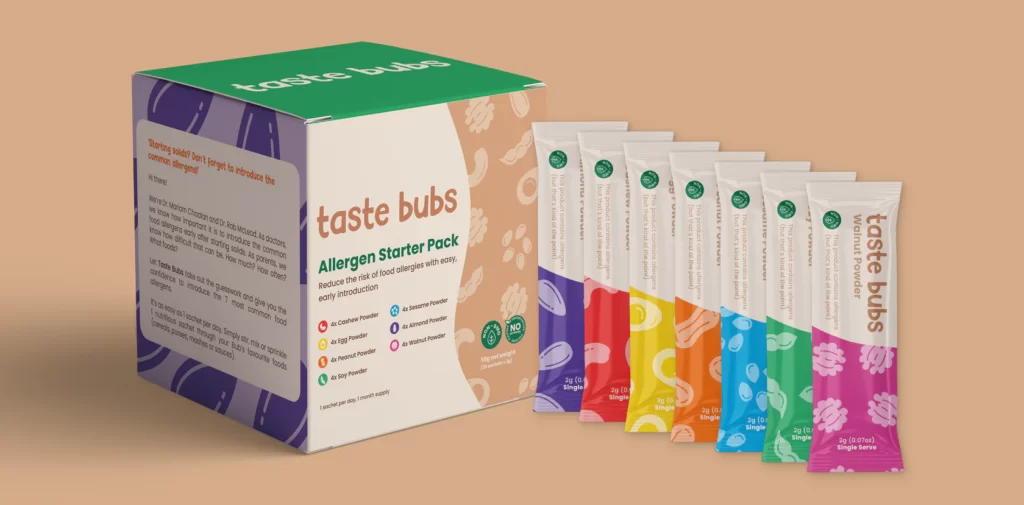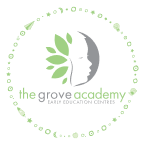Nutrition
Eczema and why you should avoid barrier creams with food proteins
Eczema is a common skin condition characterized by inflammation, resulting in red, flaky, and itchy patches of skin. It’s estimated that as many as one in three children in Australia develop eczema at some point in their lives.

Now, when it comes to managing eczema and reducing the risk of food allergies, there are a few key things to keep in mind. Firstly, it’s important to be cautious with barrier creams and moisturizers that contain food proteins. Recent research has suggested that such products may increase the risk of developing food allergies, especially in individuals who already have eczema.
We believe that common food allergens, such as nuts, eggs, and milk, should be introduced to the immune system in the way they naturally encounter them – through the gut, as food. When the body’s immune system is exposed to allergy-causing foods through the skin before the gut, it may mistake these harmless substances as threats and overreact, triggering an allergic response instead of tolerating them as food. This sensitization through the skin has been shown to increase the risk of developing food allergies, particularly in those with eczema.
It’s important to recognize that the skin is meant to be a protective barrier, our body’s first line of defence against foreign substances. However, eczema compromises the integrity of this barrier, leaving it broken or weakened.
Now, it’s worth mentioning that food allergens can sometimes be found in various makeup, skincare products, as well as shampoos and conditioners. Although it’s unlikely to experience anaphylaxis from allergens on the skin, it is possible to have milder allergic reactions like hives, redness, rashes, or itchiness. That’s why it’s essential to always check the ingredients in all products you use on your skin and hair. We want to prevent even the mildest allergic reactions and keep you safe and comfortable.

Should I avoid Allergenic foods if my baby has eczema
Research suggests that avoiding allergenic foods in babies with eczema may not necessarily prevent the development of food allergies. In fact, the current clinical guidelines recommend introducing common allergenic foods in an age-appropriate form before 12 months of age in babies with severe eczema. And this is backed by science! A landmark study published in the New England Journal of Medicine found that children with severe eczema had a significant reduction in rates of peanut allergy when peanut was introduced early and given regularly.
This is where products like Taste Bubs can come in handy, as it provides an easy and safe way to introduce allergens early on.

More Information about the author

Dr. Mariam Chaalan is a family doctor, clinical researcher and a devoted mother to twin boys. She actively works to improve health literacy through her presence on social media platforms like Instagram and TikTok, where she can be found at @ask.the.dr. She collaborates with @pinkelephantssupport to provide support and guidance to parents navigating the challenging journey of miscarriage and infertility, a topic that holds a special place in her heart. Her dedication to advocacy extends beyond social media. Dr. Mariam represented the Medical Women's Society at the United Nations Commission on the Status of Women and has contributed articles to respected publications like the SMH and Mamamia. She is a regular guest on The Project and offers health, leadership, and lifestyle advice to prominent companies and schools. As a co-founder of Taste Bubs, Dr. Mariam is actively involved in Australia's first early allergen introduction product. With a focus on reducing allergies in children, she strives to make a difference in the lives of families across the country.
Join our collective
More Information about the author

Dr. Mariam Chaalan is a family doctor, clinical researcher and a devoted mother to twin boys. She actively works to improve health literacy through her presence on social media platforms like Instagram and TikTok, where she can be found at @ask.the.dr. She collaborates with @pinkelephantssupport to provide support and guidance to parents navigating the challenging journey of miscarriage and infertility, a topic that holds a special place in her heart. Her dedication to advocacy extends beyond social media. Dr. Mariam represented the Medical Women's Society at the United Nations Commission on the Status of Women and has contributed articles to respected publications like the SMH and Mamamia. She is a regular guest on The Project and offers health, leadership, and lifestyle advice to prominent companies and schools. As a co-founder of Taste Bubs, Dr. Mariam is actively involved in Australia's first early allergen introduction product. With a focus on reducing allergies in children, she strives to make a difference in the lives of families across the country.



